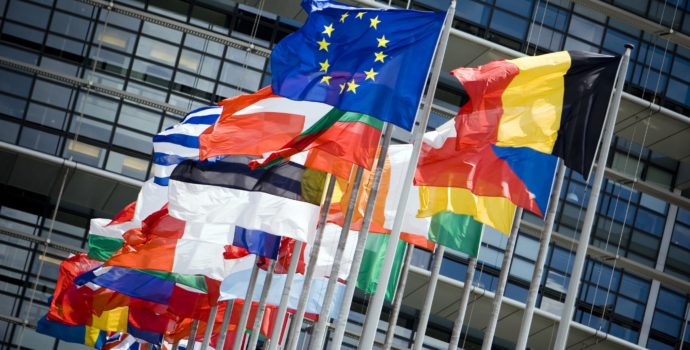European Commission Daily News 19th May

Trade and biodiversity: new methodology to better assess trade impacts on nature
Today, the Commission published a new methodology for assessing the impacts of trade liberalisation on biodiversity and ecosystems. The new methodology will contribute to further improve the sustainability impact assessments and ex-post evaluations of trade agreements, while also supporting the objectives of the European Green Deal. The methodology provides a stepwise process with a special focus on quantifying the impacts of trade liberalisation on biodiversity, such as forests and wetlands. It acknowledges the role of trade in supporting a fundamental transformation of the EU economy in line with its green objectives, and is conceived to be flexible and adaptable to the context of various types of trade agreements and partner countries. Executive Vice President for Trade, Valdis Dombrovskis, said: “The acceleration of biodiversity loss, paired with climate change and environmental degradation, have led to the recognition of the green transition as the defining challenge of our time. Supporting this ecological transition is one of the core objectives of EU trade policy, reinforced under our new Trade Policy Strategy. We have committed to prioritising the effective implementation of the Convention on Biological Diversity in trade and investment agreements. I welcome this new methodology which will contribute to better assessing the impact of our agreements.” Commissioner for the Environment, Oceans and Fisheries, Virginijus Sinkevičius, said: “Over half of global GDP depends on nature and the services it provides. And yet due to our unsustainable patterns of production and consumption, it is disappearing in front of our eyes, putting our health, food security and economy at risk. The COVID-19 pandemic has demonstrated the need for sustainable supply chains and consumption patterns that do not exceed planetary boundaries. EU trade policy must actively support and be part of the ecological transition. I am glad this new methodology will help us achieve this key commitment of the EU Biodiversity Strategy for 2030.” The new methodology focuses on the identification and application of a set of indicators that capture changes in biodiversity status and trends that may happen as a result of trade liberalisation. It looks at the drivers for the change, pressure on biodiversity, such as land or resource use, impact on biodiversity and responses to address the change – safeguards, or measures to amplify positive impacts. The methodology recommends these impacts to be assessed in a comprehensive manner, using data, research, existing case studies, expert knowledge and stakeholder interviews. It also supports the Commission’s ambition to secure a global agreement addressing the biodiversity crisis at the Fifteenth meeting of the Conference of the Parties to the Convention on Biological Diversity (CoP 15) later this year. More information is in the news item and the methodology.
State aid: Commission publishes results of evaluation of EU State aid rules for agriculture, forestry and rural areas
The European Commission has published a Commission Staff Working Document summarising the results of an evaluation of the State aid rules for the agriculture and forestry sectors and for rural areas. The evaluation was carried out as part of the ongoing review of the State aid rules for agriculture, forestry and rural areas, namely the Agricultural Block Exemption Regulation, and the 2014 EU Guidelines for State aid in the agricultural and forestry sectors and in rural areas. The evaluation concludes that, overall, the rules under scrutiny work well are broadly fit for purpose. In this respect, they largely meet the needs of the sectors concerned, while also contributing to the achievement of broader EU policy objectives, such as environmental protection as well as animal and, more generally, public health. At the same time, the evaluation revealed that the existing rules need certain targeted revisions, including clarifications of some concepts, further streamlining and simplification, as well as adjustments to reflect the EU current priorities, in particular the future Common Agricultural Policy (CAP) and the European Green Deal. The Commission will take the results of the evaluation into account when reviewing the existing rules. The Commission will proceed with the impact assessment phase of the review, to look into the issues identified during the evaluation, with a view to having revised rules in place by 31 December 2022 when the current rules will expire. A full press release is available online.
State aid: Commission approves €820,000 Slovenian scheme to support sheep and goat breeders affected by coronavirus outbreak
The European Commission has approved a €820,000 Slovenian scheme to support sheep and goat breeders affected by the coronavirus outbreak. The scheme was approved under the State Aid Temporary Framework. Under the scheme, the public support will take the form of direct grants of up to €225,000 per beneficiary, to compensate them for their loss of income caused by the coronavirus outbreak. The aim of the scheme is to help the beneficiaries address their liquidity needs and continue their activities during and after the outbreak. The Commission found that the Slovenian scheme is in line with the conditions of the Temporary Framework. In particular, the aid (i) will not exceed €225,000 per beneficiary active in the primary agricultural sector; and (ii) will be granted until 30 June 2021. The Commission concluded that the measure is necessary, appropriate and proportionate to remedy a serious disturbance in the economy of a Member State, in line with Article 107(3) (b) TFEU and the conditions set out in the Temporary Framework. On this basis, the Commission approved the scheme under EU State aid rules. More information on the Temporary Framework and other actions taken by the Commission to address the economic impact of the coronavirus pandemic can be found here. The non-confidential version of the decision will be made available under the case number SA.62926 in the State aid register on the Commission’s competition website once any confidentiality issues have been resolved.
Read the European Commission Daily News in full here.




